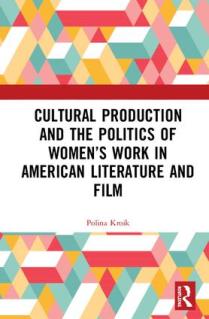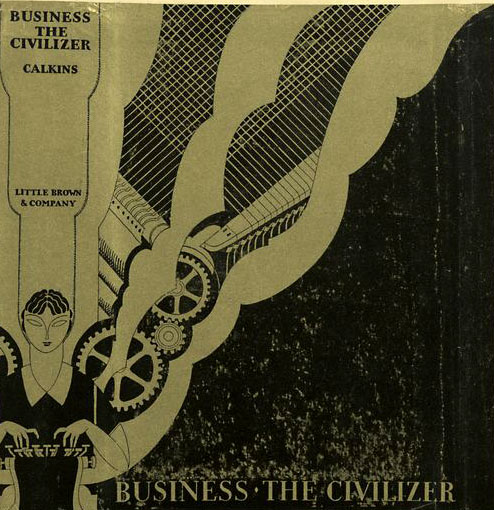
My book, Cultural Production and the Politics of Women’s Work , was published by Routledge, 2019.
Check out the book’s page on the Routledge site for a description and reviews!
E-book on Google Books with preview.
E-book and Hardcover on Amazon
As well as this wonderful episode of Books Aren’t Dead for the Fembot Collective.
If you would like to read a sample chapter or are interested in a review copy of the book, please let me know!
About the book:
Viewers of the TV show Mad Men, set in mid-20th century, are familiar with the figure of the secretary. Young, obedient and sexually available the secretary was as ubiquitous in U.S. white-collar offices as she was in popular film and fiction. However, the secretary entered the scene much earlier, in the first decades of the 20th century. As white, middle-class women started working in offices for the first time in the 1910s and 1920s, their presence became codified in images that highlighted both domesticity and sex-appeal. For a while, these working- or “business” girls were figures for the modern woman—newly liberated from Victorian norms. Yet as the 20th century wore on, the association between women’s domestic and sexual roles and their positions in the workplace limited women’s occupational choices and reinforced economic inequality.
This book takes the feminization of clerical work and the rise of the image of the secretary as a starting point, investigating the effects of these social, cultural, and economic trends on writers and filmmakers. Just as women were relegated to subservient, lower-paid positions in the office, they could only participate in cultural production as low-ranking editors, screenwriters and writers of popular fiction. In the Modernist movement, the appearance of the female clerical worker led influential writers to distance themselves from popular forms by modeling “high” literary authorship on elite professions from which women were excluded. Following a chapter that investigates early secretarial work through Sinclair Lewis’s The Job (1917), Cultural Production and the Politics of Women’s Work focuses on women writers who struggled to produce sophisticated, critical works of literature and film under this patriarchal structure. The authors discussed include Edith Wharton, Nella Larsen, Anita Loos (as a screenwriter) and Sylvia Plath.
